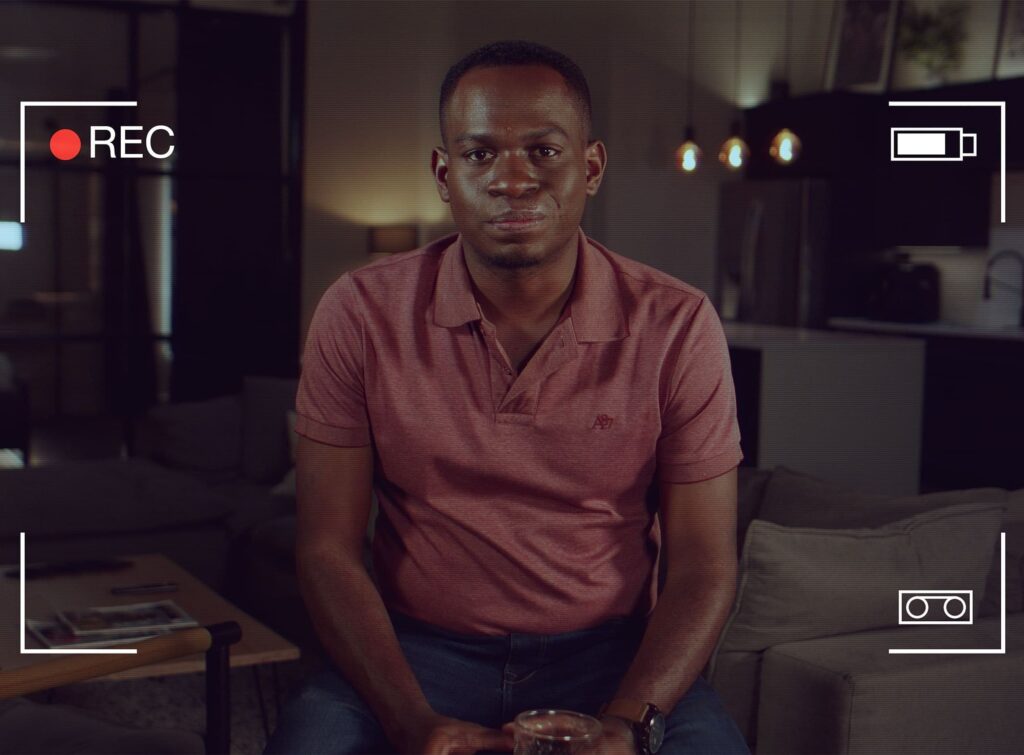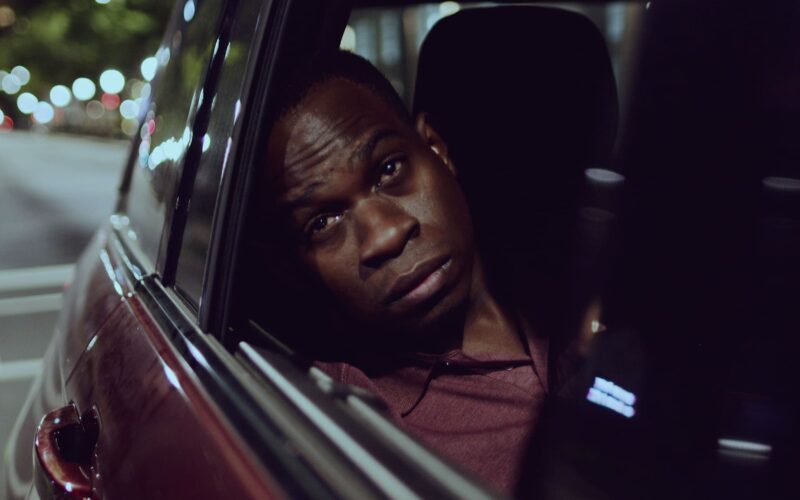Directed by Justin Poage and written by Chase Gutzmore, A Shot of Truth is an intimate short film that skillfully blends raw confession with cinematic elegance. The story follows Stan (played by Gutzmore himself), a documentary filmmaker whose drinking has cost him his relationship with Kendra (Angelique Valentine). When confronted with the breakup, Stan turns his camera on himself, exploring love, addiction, and responsibility while asking the searing question: Am I the problem?

From its very first shot—a fixed camera observing Stan’s face through a moving car window—the film invites us inside the character’s fractured psychology. The narrative unfolds between face-to-camera monologues and flashbacks that shed light on the couple’s dynamic. This alternation creates both rhythm and contrast: the stark intimacy of Stan’s confessions against the tender yet tense memories of his life with Kendra.
The performances are impeccable. Gutzmore delivers a layered portrayal of a man oscillating between vulnerability and denial, while Valentine’s presence carry emotional weight that grounds the film. Together, they form a believable couple in crisis, navigating the silent wreckage left by addiction.
The decision to make Stan a documentary filmmaker is a clever device. His use of his own camera to record confessions bridges character and audience, allowing us to step directly into his inner turmoil. This technique heightens the film’s sense of authenticity while reinforcing its theme of self-examination.
Visually, the film is polished and precise. Poage’s background in cinematography—alongside Kenneth Bradley—ensures a clean, composed aesthetic. Chris Terry’s score adds texture without overwhelming the performances, while Poage’s editing balances rawness with clarity.

Between intimate monologues and delicately staged flashbacks, A Shot of Truth navigates addiction, accountability, and broken love with striking honesty. The careful direction, strong performances, and unexpected final twist give the film lasting impact. A thoughtful and technically assured work, it confirms Justin Poage’s skill not only as a director but as a storyteller willing to probe deep into human contradictions.









